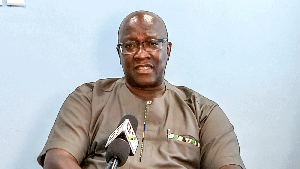 Professor William Kwabena Ampofo,
Professor William Kwabena Ampofo,
Ghana has made some remarkable and giant strides in the journey towards the development of vaccines in the country. This refreshing news was disclosed by Professor William Kwabena Ampofo, the Chief Executive Officer of the National Vaccine Institute, on the sidelines of a forum on the country’s preparedness for a pandemic on Friday, July 12, 2024.
Further details disclosed by Professor Ampofo indicate that the process, spearheaded by the National Vaccine Institute and Noguchi Memorial Institute, is anchored on an effective public-private partnership.
Professor Ampofo averred that the country is leveraging existing research works in the vaccine development field and the lessons from the COVID-19 pandemic to ensure that it is adequately prepared to provide timely and effective healthcare to Ghanaians in the event of another disease outbreak.
“We’ve made progress so far. Per the roadmap we created, we were supposed to establish a vaccine institute by a parliamentary act, which has been done. We have two vaccine manufacturers who are partnering. We also set out to capitalize on vaccine R&D by the researchers, and this program is a major milestone in that effort."
Stakeholder Engagement
Professor Ampofo emphasized the importance of stakeholder engagement in the process and assured the National Vaccine Institute’s preparedness to facilitate effective collaborations among the various relevant stakeholders to ensure that the dream of making Ghana a vaccine production hub becomes a reality.
He noted the overarching importance of stakeholders such as the Noguchi Memorial Institute, the Ministry of Health, the Food and Drugs Authority, Civil Society Organizations, among others, in the bid to develop vaccines in the country and pledged that at every step of the way, relevant stakeholders will be engaged.
“This was an important activity because it allowed us to share with the public the efforts we are making in vaccine research and development to be able to make vaccines in Ghana. These kinds of fora give us the opportunity to bring scientists to town to explain to the public what we are doing.
“We want to assure the public that we are working closely with the FDA to ensure that the science is the best and we actually produce safe and effective vaccines for Ghana. Our strategy is working with the private sector so we actually provide a link between the private sector and the researchers to get the funding required to make it all happen."
LMICs Must Decide What They Want
Sharing the rich history and experience of the United States of America's vaccine production journey with the gathering, Professor Barney S. Graham, the globally acclaimed immunologist and virologist, pressed home the need for Low- and Middle-Income Countries to figure out what works for them and craft a policy that addresses their peculiar situation.
Commending Ghana for taking the initiative to produce vaccines and prepare for future virus outbreaks, Professor Barney urged LMICs to glean lessons from the COVID-19 experience and ensure that they are independent of other countries and organizations when it comes to responding to health emergencies.
He explained that developed countries will always prioritize their citizens in the event of a global health pandemic and that it is imperative that countries endeavor not to be over-reliant on the developed countries.
Demystifying Myths and Misconceptions About Vaccines
Dr. Amoakoh-Coleman, a Public Health Physician and Clinical Epidemiologist, reiterated the need for consistent engagement with the public to make them appreciate the process and also clear every misconception about vaccines, especially those produced in Ghana.
“We need to educate our community through the churches, community engagement, and CSOs about the fact that vaccines are meant to protect us from diseases. People’s understanding of their risk to diseases also influences their receptiveness towards vaccines, so people should understand that when we have an outbreak, it will affect anyone you come into contact with.
“We really need to make sure that our communication and engagement of the population is done on a consistent basis. We have a whole lot of religious and cultural misconceptions and myths that really affect people’s attitudes towards vaccines, and we need to constantly work with the population to address it."